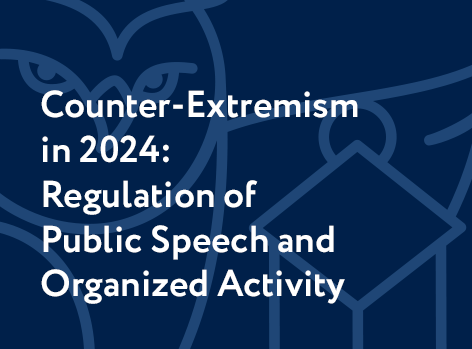This month we saw one significantly positive development: a serious clearing-out of the Federal List of Extremist Materials, which has long been plagued with multiple and outdated entries. Otherwise, we saw all the same trends reported in previous updates.
On May 3, the Ministry of Justice withdrew long-disputed books by L. Ron Hubbard from the Federal List of Extremist Materials; they had occupied paragraphs 632-660. Additionally, some duplicate entries (paragraphs 667, 677-679 and 682) were excluded from the List, a welcome first step in what is sure to be a long and tortuous process to give the List some functionality and actual meaning. However, we have serious doubts that this goal can actually be achieved.
Criminal prosecution
At least six criminal cases were initiated on what we feel were improper grounds. We give special attention to a case in Magnitogorsk, where Article 282 of the Criminal Code (incitement to social hatred) was used against trade union activists Andrei and Olesya Romanov for posting a video of Andrei’s arrest by police.
In addition, two verdicts were issued in Makhachkala: a guilty verdict against a follower of Said Nursi (under Article 282.2 of the Criminal Code, organization of activity of an extremist group); and a not-guilty verdict which acquitted the employees of local newspaper "Chernovik" of Article 282 (incitement to social hatred).
A case against Gorno-Altaisk Jehovah’s Witness Aleksandr Kalistratov – who had previously been acquitted of incitement to religious hatred – has been reinitiated, with the Supreme Court of the Republic of Altai referring the case back to the court of first instance.
Administrative prosecution
In May 2011, wrongful administrative charges were initiated in Krasnodar. The case involved an Internet clip featuring the famous Soviet character Stirltz as part of a humorous birthday greeting. Stirlitz, a Soviet spy who infiltrated the German SS, featured heavily in Soviet books, films, television and jokes, and is roughly analogous in cultural stature to James Bond in the West. Regardless, the individual who posted the clip was charged under Part 1 of Article 20.03 of the Code of Administrative Offenses (propaganda and public demonstration of Nazi attributes or symbols).
Additionally, a library director in the Sverdlovsk region was charged and fined under Article 20.29 of the Code of Administrative Offenses (distribution of extremist materials) for stocking a banned book. We remind readers that, under the law On Librarianship, the libraries can by no means conceal or get rid of books even if they are banned.
Anti-extremist warnings to media
In May, Roskomnadzor wrongfully issued warnings to two media sources: the Chita newspaper "Vechyorka" for publishing a photo of a cigarette lighter decorated with a swastika which was on sale in the city; and to the "Evening Tyumen" paper for citing a quotation from Hitler. It is SOVA’s position that quoting from prohibited texts does not constitute extremism as such. In the article in question, the Hitler quote was not used to promote Nazism.
Extremist materials
In May we were made aware of an April 22 decision by the Pervomaisky District Court of Krasnodar to ban four publications by the Jehovah’s Witnesses, while a City Court in Salsk (Rostov region) resumed a trial seeking to ban an additional five Jehovah’s Witnesses texts. The latter case began in March 2009.
Legislative initiatives
On May 11, the State Duma rejected a bill proposing heavier penalties for hate-motivated crimes, introduced by the Parliament of the Moscow City Duma in October 2010. The bill also contained clauses that would deny jury consideration to cases of racist violence, and that would put administrative responsibility on media sources for mentioning the ethnicity of anyone on trial during its coverage. Similar bills have been introduced several times in the State Duma, but have always been rejected. The SOVA considers these initiatives useless and even harmful, so, it welcomes the fact that such legislation was not passed.



